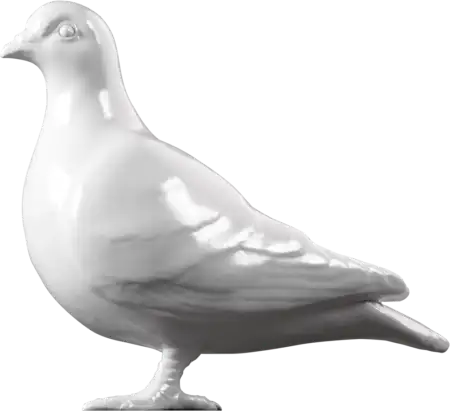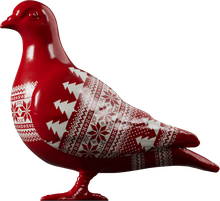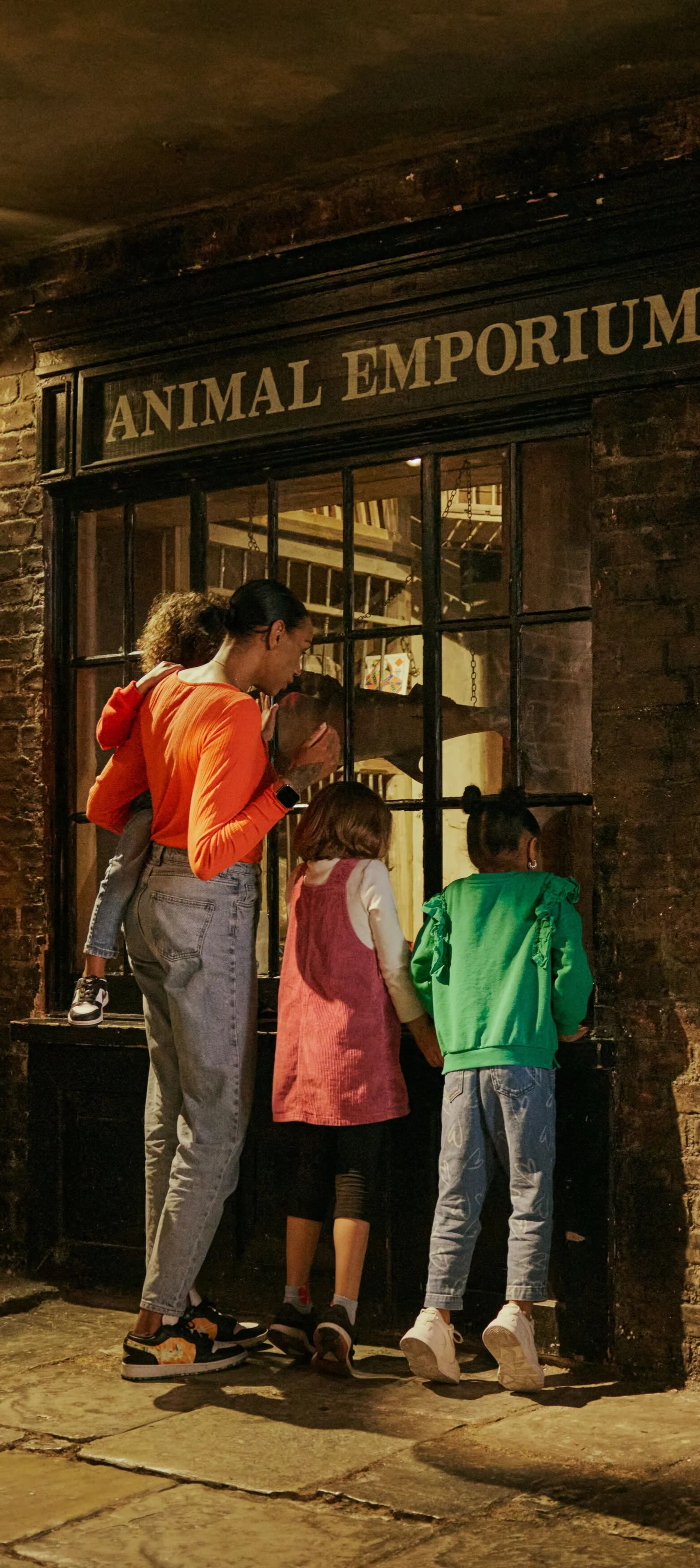21 June 2024 — By Cedar Lewisohn, Theresa Dhaliwal Davies
10 records that tell the story of Dub London
Dub reggae is a form of roots reggae music which originated in the Caribbean and Jamaica. Cedar Lewisohn, co-curator of the museum’s 2020 display, shares 10 of his favourite dub records that tell the story of ‘Dub London’.
Dub as a unique musical genre emerged from the creative depths of Jamaica’s reggae scene in the 1970s. This innovative sound quickly found a home in London, captivating the city’s Black youth eager to embrace their roots and soon dub took hold in the city.
What is dub?
The ‘dub’ sound was born on the B-sides of reggae records. Vocals were ‘dubbed’ out by the sound engineer, leaving bassline and drumbeat as a springboard for sonic exploration.
There are strong crossovers between dub and London as a centre of music production, recording studios, record labels, record shops, radio stations and clubs. There are many voices of dub. Its history, spirituality, movers and influencers have shaped London’s multicultural landscape.
Dub London
As part of a two-year collecting Curating London project to explore this history and culture of dub music in London, co-curators Cedar Lewisohn and Theresa Dhaliwal Davies worked with communities across the city to unpack this topic from a wide cultural perspective, leading up to an immersive exhibition. Research involved interviewing the owners of reggae record shops around London, and asking them to recommend reggae and dub records that should go into London Museum’s collection. Cedar says, “The research was also an opportunity for me to look deeper into some of the records already in my collection and discover the backstories that shaped the music and culture.”
While Cedar recommends that everyone should check out the godfathers of dub such as Lee Scratch Perry, King Tubby, Joe Gibbs and Augustus Pablo, below he shares 10 of his favourite dub records, with which he found a personal connection.

A display of the photos taken by photographer Eddie Otchere of the Notting Hill ‘Channel One Sound System set’ at the Dub London exhibition.
Studio 1 Presents Tribute to Peckings
Peckings Record Shop is a cornerstone in the history of reggae music in the UK and London. Like so many others, George Price (aka Mr Peckings), travelled in the early 1960s from Kingston in Jamaica to London, via Southampton. With him he brought the music of the Studio One Records label; without question one the most influential reggae record labels of all time.
Peckings Record Shop on Askew Road, Shepherd’s Bush, was for many years the sole distributor of Studio One Records in the UK. This gives a clue to the huge influence this shop has had on popular culture in London and on the UK’s music more widely. This record gives a glimpse into the music Mr Peckings would listen to himself, when working in the shop.
Sir Coxson Sound King of Dubb Rock
Sir Lloyd Coxsone is well known as one of the kings of UK sound system culture; what we’d call “a foundation man”. He produced many, records including the Lovers Rock classic, Caught You In A Lie by Louisa Mark.
Though he was born and grew up in Jamaica, Lloyd Coxsone represents UK sound systems and the history of the subject in relation to London. There is even a track on the LP called Piccadilly Circus Dubb. Originally released in 1975, this LP takes you back to the legendry club nights at The Roaring Twenties night club, where Lloyd Coxsone’s sound system played alongside DJ Festus.
Robotiks – My Computers Acting Strange
Another Mad Professor classic. Quirky analogue dub. There is something retro sci-fi about this record, while also being Afro-futurist. I always loved the cover art, which probably greatly influenced my purchase of it. I must have brought this in the mid-90s, possibly in Dub Vendor or Blacka Dread. The address on the back of the record says it was produced in Ariwa Studios, 42 Gauntrey Road, SE15, Dub Peckham.
I think it is important to acknowledge Mad Professor’s huge influence on bringing dub music to the mainstream in the UK and beyond. His Ariwa record label has released over three hundred records. This is a cornerstone of British and Caribbean reggae music.

Research involved interviewing the owners of reggae record shops around London. Some of the stories were reflected here.
Dub Judah – Dubtech Dub
I love the D.I.Y look of this record. It’s not messing around and you know it’s rare as hen’s teeth. I am fairly certain I brought this record in Blacka Dread record shop in Brixton in the early 90s. Buying records at Blacka Dread in the 1990s was not an easy thing to do, especially on Friday or Saturday nights.
Crucial Bunny V. Scientist – Dub Duel
Hawkeye Records are an important part of this story. This record, released by Hawkeye, shows the calibre of the music they have brought to the UK. I’m a big fan of the Scientist side of this record. Scientist is dub music’s answer to Ernest Hemmingway, maybe with a touch of Olivia Butler. His beats and melodies are so crisp and precise. He uses echo and delay with such precision. He is the definition of ‘engineer as musician’. I’d love to know who all the people are on the cover of the record, I can definitely see Bob Marley and Mick Jagger.
Jah Shaka – The Commandments of Dub
Released in 1982 and mixed at Ariwa Studio by Mad Professor, this record captures some of the spiritual bass and uplifting vibrations of going to see a sound system session of Jah Shaka. I would basically describe seeing Jah Shaka live as a religious experience. In fact, record shop owner and sound system operator Jah Lingwa did say to me “soundsystem is our church.”

Papa Face behind the record shop at the exhibition at London Museum.
Linton Kwesi Johnson – Bass Culture
Produced with the father of UK Dub, Dennis Bovell, Bass Culture by Linton Kwesi Johnson is a modern masterpiece. All the more relevant in the world of 2020, LKJ’s mix of political protest, social activism, education, and community focused engagement, makes for completely compelling listening forty years after its initial release.
I bought my copy of this record in the now closed Daddy Kool in Soho. Daddy Kool is fondly remembered by reggae music fans, who knew it as not being the friendliest place in London to buy records.
Mixman – Dub Like Wildfire
Dennis Mixman and Blackamix Productions is one of my favourite Dub music producers. His style is a slightly faster form of dub music which emerged in the early 1990s. It actually sounds timeless and has aged very well. The dubbed out vocals on the record are political, and embedded in Black History. One of the tracks is called Kill Nebucanhezzer. This is Babylonian history: imperial Dub!
A copy of this record has been added to the permanent collection of London Museum, as suggested by the excellent record shop Massive International in Camden.

Channel One Sound System’s set at the Notting Hill Carnival.
Sly and Robbie – Dub Boom (b-side)
Greensleeves was always such a great record label that brought Jamaican music to the UK. What I’ve always loved about Greensleves records, as well as the music, is the cover art from their 1980s 12’’ records. The illustration is a timeline of Jamaican Reggae music, starting with what looks like a Mento band, then moving though Ska, Rockstready, Roots and then ending up with a Sound System in West London called, cheekily, City Quake Sounds.
What is also special about this record for me, and many other Greensleeves records in my collection, is that my uncle gave it to me when I visited Jamaica. I love the idea that my uncle took his records from England to Jamaica, and that the records feature Jamaican music released on an English record label. Then I brought them back to London.
Twinkle Brothers – Lion Head: Dub Massacre Part Five
The Twinkle Brothers represent a strong link between Jamaica and London. They formed in 1962 and are still releasing music today. They have worked with many of the great reggae and dub producers such as Duke Reid, Lee “Scratch” Perry and Bunny Lee.
This LP is a good introduction to their more Dub orientated work from the 1990s. I picked up my copy of this record at Supertone records in Brixton; one of the original Reggae record shops in London.
Along with shops like Peoples Sound, every time I visit these record shops, I learn so much from the owners. It might be about the music, London’s history, or local politics. These shops are the “crown jewels” in London’s cultural landscape, so it’s important to support them, go inside, have a chat to the person behind the counter, and buy loads of amazing music.
This is an edited excerpt of the original article by Cedar Lewisohn published on 15 July 2020. Cedar Lewisohn and Theresa Dhaliwal Davies (Curatorial Producer, London Museum) were co-curators of Dub London.



